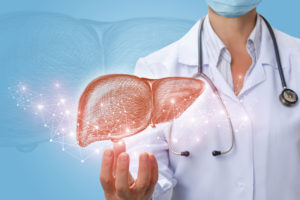 Liver problems can lead to very serious medical complications. Whether these problems are urgent potential emergencies, such as acute liver failure, or long-term health issues, such as fatty liver disease, they can become life-threatening if they are not treated promptly and effectively. Liver problems are not rare in adults; according to the American Liver Foundation, they affect over 100 million people throughout the United States. However, in rare cases, they can also occur in children.
Liver problems can lead to very serious medical complications. Whether these problems are urgent potential emergencies, such as acute liver failure, or long-term health issues, such as fatty liver disease, they can become life-threatening if they are not treated promptly and effectively. Liver problems are not rare in adults; according to the American Liver Foundation, they affect over 100 million people throughout the United States. However, in rare cases, they can also occur in children.
The most common type of liver condition in children is nonalcoholic fatty liver disease (NAFLD), which occurs when too much fat forms in the liver cells. NAFLD can occur due to:
- Obesity
- Insulin resistance
- Type 2 diabetes
- Abnormally high amounts of cholesterol or fat in the bloodstream
- Sleep apnea
In its early stages, NAFLD doesn’t usually cause symptoms. As damage to the liver accumulates, the following symptoms may occur:
- Abdominal discomfort or pain
- Fatigue
- Irritability, depression, and/or anxiety
- Headaches
- Difficulty concentrating
- Changes in skin color around the joints, upper back, and/or the back of the neck
Continued damage to the liver over an extended period of time leads to cirrhosis, which refers to the formation of nodules on the liver. Cirrhosis also causes the liver to harden. As cirrhosis occurs, other symptoms may begin to appear, including:
- Jaundice (yellowing of the skin and eyes)
- Itching skin
- Stomach swelling
- Dark-colored urine
- Bruising easily
A variety of other conditions can also cause liver disease to occur in children. Many of these can occur as a result of a variety of factors, such as inherited genes or viral infections. They include:
- Alagille syndrome
- Alpha-1 antitrypsin deficiency
- Crigler-Najjar syndrome
- Glycogen storage disease type 1
- Progressive familial intrahepatic cholestasis
- Gilbert syndrome
- Autoimmune liver disease
- Biliary atresia
- Budd-Chiari syndrome
- Galactosemia
- Hepatitis B and C
- Primary sclerosing cholangitis
- Reye’s syndrome
- Wilson disease
If your child is experiencing symptoms of liver disease, it’s important to visit a pediatrician as soon as possible. You can schedule an appointment at Forest Hills Pediatric Specialists by calling (718) 704-5020.
All content of this newsletter is intended for general information purposes only and is not intended or implied to be a substitute for professional medical advice, diagnosis or treatment. Please consult a medical professional before adopting any of the suggestions on this page. You must never disregard professional medical advice or delay seeking medical treatment based upon any content of this newsletter. PROMPTLY CONSULT YOUR PHYSICIAN OR CALL 911 IF YOU BELIEVE YOU HAVE A MEDICAL EMERGENCY.

